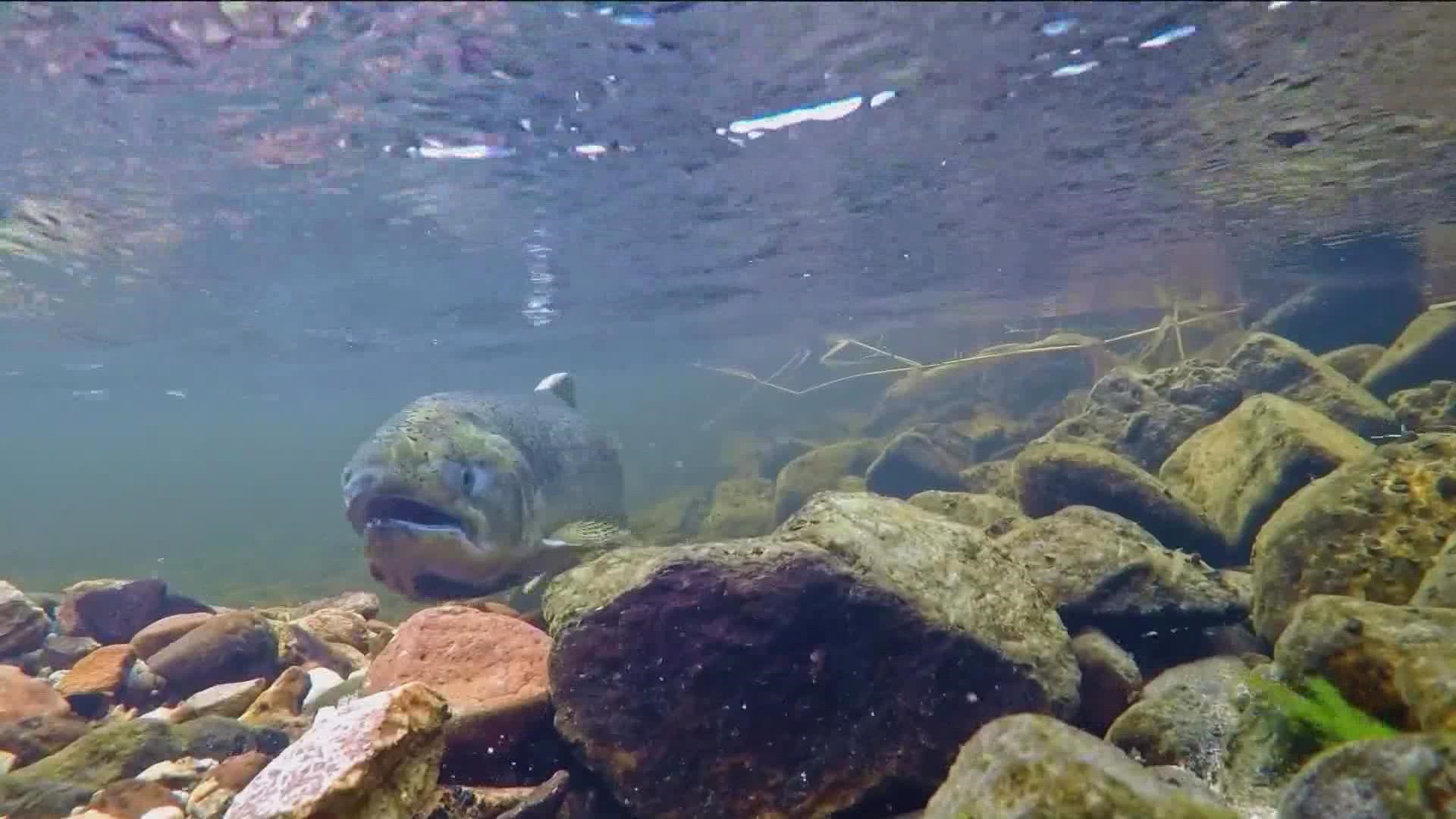BOISE, Idaho — The backyard of Idaho captures the imagination of outdoors enthusiasts: the beautiful trees, the crisp water flows, and a diverse wildlife population. Places like the Boise National Forest are picture perfect for summer activities, but they are also prime locations for research projects.
“It is actually. I'm very excited and very happy to be part of this field because we are studying how the physical environment impacts the ecosystems,” said Dr. Daniele Tonina, a professor and researcher at the University of Idaho in the Center for Ecohydraulics Research.
Dr. Tonina is part of a research team that just published findings about the impact of climate change in salmon habitats in Idaho.
“What we really wanted to understand is how much of this climate change impacted the habitat of some settlements,” Tonina said.
The research looked at Chinook salmon habitats on Bear Valley Creek, a headwater stream of the Salmon River in central Idaho. The team’s findings include points that many Idahoans would raise their eyebrows to.
“What we found out is that as the climate is expected to get a little bit dryer in our system. So what do we expect? It's not only the temperature to be warmer of the water, but also the summer volume. The summer volume of water will be smaller. And that means also a smaller volume of habitats in the streams for the summer months for both spawning but also rearing. And that is two aspect has been very and appreciated on aspect of climate change on fish habitat,” Tonina said.
Meaning, as climate change continues, the impact to Idaho salmon habitat could be threatened in a significant way.
“It’s equal to a 20% reduction on rearing habitat and another 23% reduction on spawning habitat, which is actually very large compared to what it was in the 1960s. So it's a strong reduction and it will be even stronger when we do projection of behind the 24th and we get to 2090,” Tonina said.
So, why should Idahoans care?
“Well, it's very important for all of us. I think first is because salmon are such an iconic species for us for the Pacific Northwest and they have been living here for thousands of years. And climate change is continuing with the pressure, these are populations we might see a decline on the size of this population, which eventually means that the fish in them will be extremely limited and in the most extreme cases or scenarios we can expect some of the species, some population of the species may disappears and not even trace any longer. So that's why it is extremely important for us,” Tonina said.
To be clear there is not one simple action to reverse the reality, but that does not mean there is nothing that can be done. Dr. Tonina explains the scale of climate change, from a global scale to our own backyard.
“The first part is awareness. The fact that most of the times when we think about the impact of climate change, we think in areas where humans have a make a disturbance or some activity. But if we think in the central part of our state where we do have pristine and wilderness streams, even those streams now feel the effect of climate change. So even where humans are not present there now, climate change is so global that that impact them as well. And it's important for us to recognize that,” Tonina said.
Join 'The 208' conversation:
- Text us at (208) 321-5614
- E-mail us at the208@ktvb.com
- Join our The 208 Facebook group: https://www.facebook.com/groups/the208KTVB/
- Follow us on Twitter: @the208KTVB or tweet #the208 and #SoIdaho
- Follow us on Instagram: @the208KTVB
- Bookmark our landing page: /the-208
- Still reading this list? We're on YouTube, too:

